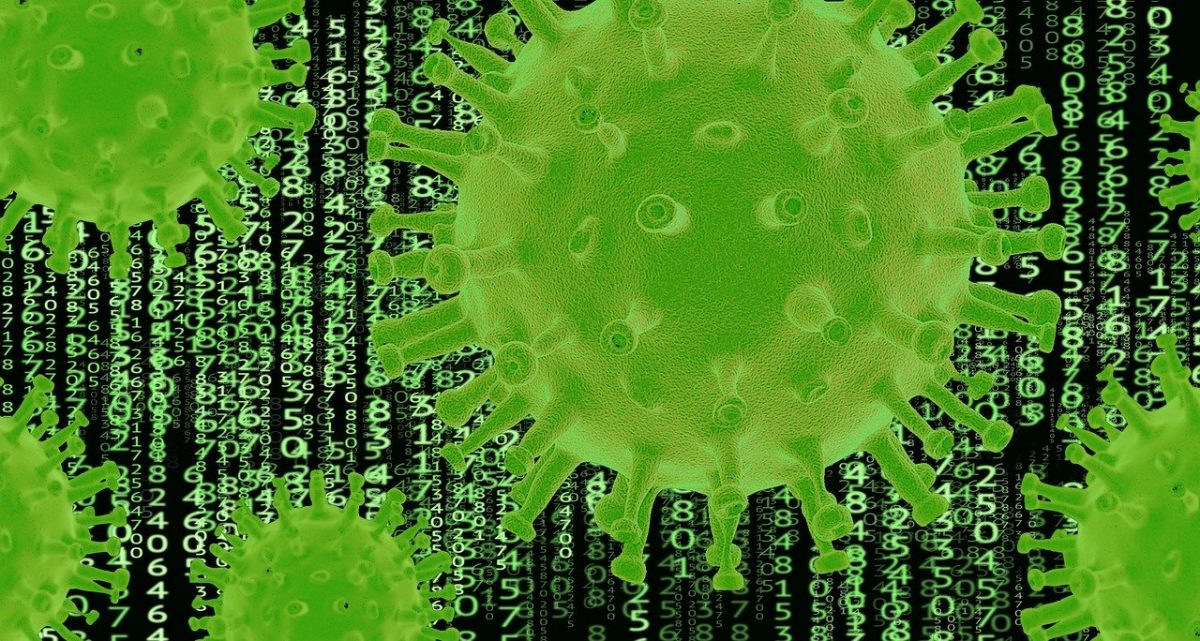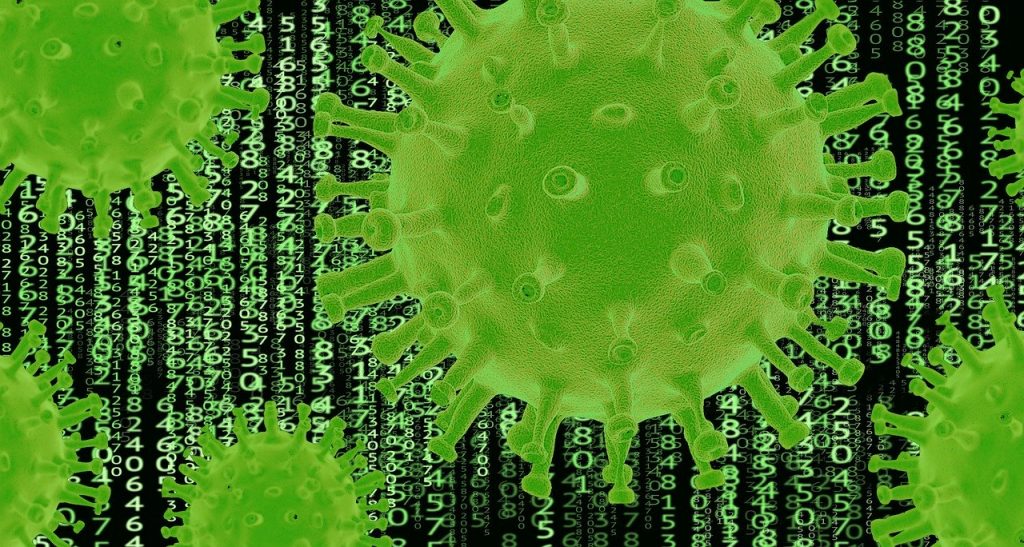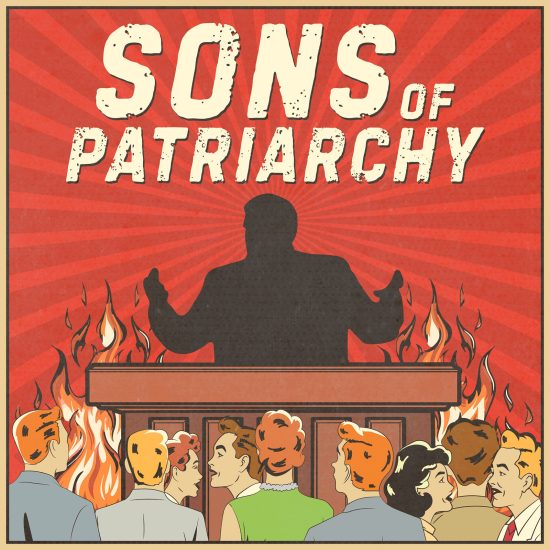
(RNS) — As we enter the third month of the coronavirus lockdown, conspiracy theories about the coronavirus, and what will or won’t cure it, abound. There are the quick fixes hawked by the president, who has repeatedly promoted the unproven hydroxychloroquine as a treatment for COVID-19. There are the videos blaming a Chinese lab for releasing the virus, or saying that the pandemic was created by Bill Gates, or by Big Pharma to sell vaccines. There are the videos suggesting that the coronavirus doesn’t exist, that it’s all a hoax, that essential oils or other natural home remedies can prevent or treat what established medical trials currently can’t.

Image by Omni Matryx from Pixabay
Conspiracy theories are nothing new in the American cultural landscape, of course — particularly not in the era of the internet. Last week, The Atlantic published an in-depth look at perhaps the most influential conspiracy theory in America, the online community known as QAnon that has coalesced around the figure Q. It was Q, an individual or group of individuals, who first posted on the anonymous internet bulletin board 4Chan claiming to have proof that the media and political landscape was run by a cabal of Satan-worshipping pedophiles, including Hillary and Bill Clinton.
The claims that Q has made since, from the presence of a child sex ring in the basement of a D.C. pizza shop to the notion that Donald Trump feigned his collusion with Russia in order to help combat this shadowy cabal, are extreme, but nevertheless often make their way into the mainstream right-wing ecosystem, from Fox News to the president’s tweets.
America has been historically fertile soil for conspiracy theories. We are intuitionalist by nature, distrustful of institutions that would prescribe knowledge or behavior for us. From spiritualism to New Thought, the American religious landscape has been characterized by fads and phenomena that claim that inward truth and emotive authenticity are more authoritative than the creeds, facts or dogmas maintained by institutions.
The mythos of American self-making — that with the right amount of grit and cunning, the individual can determine his own truth and fate — lends itself to the view that civil bureaucracies and establishments, by contrast, are inherently sclerotic and corrupt: the information they provide automatically suspect.
This tendency can be glimpsed in the contrarian programs of investor and PayPal founder Peter Thiel, who founded and funded a Thiel Fellowship designed to coax promising would-be entrepreneurs to drop out of college and go straight into solitary startup life. It is this tendency, too, that underlies our collective obsession with “fake news” — and with alternative news outlets and conspiracy theorists, like Alex Jones, who claim to “tell it like it is” — in coded contrast to the wisdom of the establishment.
Conspiracy theories tie into a wider mistrust of civic life, combined with an optimistic belief that the individual is capable of “discovering” — through a cursory YouTube search or other research in the digital landscape — truths about the world order that the establishment is trying to hide.
This faith in online “truth” seems particularly a propensity of millennials and their successors. Almost 3 in 4 Americans under 30 believe that “people just look out for themselves” at least most of the time. As many as 71% say that most people “would try to take advantage of you if they got a chance.” Young adults are significantly more likely than seniors to say they distrust business leaders, religious leaders, the military or the police.
In the absence of faith in these institutional vanguards, intuitionalism makes all the more sense: If we cannot trust the people “in charge,” then we ourselves become the most reliable source of information, our gut the only entity we can be sure is not lying to us.
The failure of institutions to keep us safe in the current crisis and to garner public trust has rendered us all the more susceptible to the cacophony of the internet. It may be through incompetence, rather than malice. But the failures of the “deep state,” as QAnon terms the establishment, are exactly what make communities like QAnon thrive.
As our political leaders fail to provide Americans with adequate and sustainable guidance to cope with this pandemic, as our medical establishment has seemingly failed to yet provide us with adequate testing, a cure or even a full understanding of the disease, as we are told first that masks are unnecessary and then that they are required, our gut seems no more or less reliable than those whose wisdom we never had faith in to begin with.






